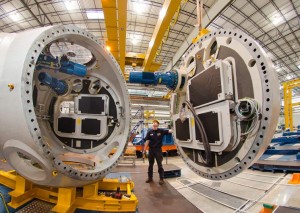Former CIA Director John Deutch published an interesting article in the Wall Street Journal on August 14, offering his thoughts on the shale gas revolution. Here on ASP’s Flashpoint blog, we’ve been following several of the major topics he touches on.
The major shift underway by utilities from coal to natural gas is dramatically changing America’s energy landscape. This has allowed the U.S. to achieve the largest reduction in greenhouse gases out of all industrialized countries in 2011. Low prices are also prompting calls for the U.S. to begin exporting natural gas, and Cheniere Energy, of which John Deutch is a board member, has plans to build export terminals on the Gulf coast. As he notes in his article, abundant natural gas can be a real economic boon to the United States, but environmental standards addressing air and water pollution are critical.
Over the last year or so, the energy world has become increasingly bullish on the oil and gas production in the United States, with many predicting the U.S. will become an energy exporter by the end of the decade.
To be sure, energy production is up dramatically. U.S. oil production is up 12% over the past year alone. Natural gas production, while it may have plateaued in recent months because of low prices, is up 28% since 2006. Neither was predicted as recently as a few years ago.
Despite the unexpected energy abundance, high production of oil and gas is taking place in absence of a long-term national energy policy. While political candidates fight over whether or not we should be drilling more or less, drilling will continue where it is profitable to do so. However, just because we are in a current period of elevated production, we should not grow complacent. Long-term energy policy planning is needed. John Deutch puts it nicely:
To be sure, a North America independent of oil imports still isn’t energy independent. The U.S. economy will continue to be subject to world oil prices, and supply disruptions in the world will still create price spikes. Close allies such as Germany and Japan will remain significantly dependent on oil imports from unstable regions, and their dependence will constrain U.S. foreign-policy choices.
As ASP Senior Fellow Andrew Holland laid out in a report last year entitled “America’s Energy Choices”, there are three basic strategic concerns that we need to consider when forming energy policy: energy security, economic security and environmental sustainability. When looking at all the major energy choices facing America, we are largely burning coal, natural gas and oil to meet most of our energy needs. However, all three of these fossil fuels fail, in varying ways, to meet the three criteria put forth. Coal is cheap and abundant, but dirty. Natural gas is cleaner and relatively abundant, but has long suffered from price volatility. And oil is dirty, expensive and is not really abundant at all.
In order to ensure that the U.S. energy mix provides energy, economic and environmental security, we need policies to roll out next-generation energy sources. This includes biofuels, nuclear power, renewable energy and fusion energy. As it stands, these technologies are fighting an uphill battle against incumbent fossil fuel technologies, which have long enjoyed government support.
There is a Presidential election less than three months away. The next administration should make next-generation energy issues a priority.



